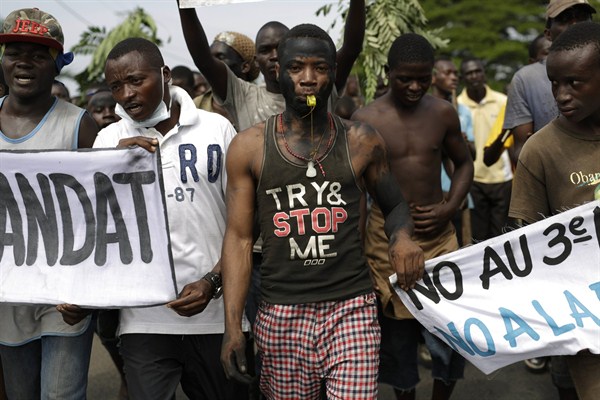In April, Burundi’s president, Pierre Nkurunziza, announced that he would run for a third term in the 2015 presidential election, stoking outrage among his opponents. Unrest swept the capital, Bujumbura, and protests devolved into violence as security forces increasingly cracked down on dissent against the ruling CNDD-FDD party. An attempted coup was quickly quashed, leading to a series of arrests and beatings of its accused perpetrators, and unleashing more violence in the streets, causing thousands to flee.
Officials in neighboring Rwanda called on Burundian authorities to mitigate a humanitarian catastrophe and quell unrest. That deviated from other East African nations, which remained largely silent on Nkurunziza’s candidacy and the violence it unleashed. In May, just over a week into protests, Rwandan President Paul Kagame publically sympathized with demonstrators, stating that widespread discontent among Burundians should compel Nkurunziza to step down. On May 8, Kagame tweeted, “How can one say 'I'll stay whether you like it or not’? That’s a big problem.” Two days later, Burundi deported a Rwandan national accused of spying for “foreign intelligence” and inciting opposition protests.
It is worth noting that Kagame’s criticism of Nkurunziza’s candidacy is not actually linked to Nkurunziza’s attempt to change the constitution to justify a third term. After all, many observers suspect Kagame himself is trying to do the same thing in Rwanda: Lawmakers there approved a change to the constitution in July, in response, they said, to popular calls for Kagame to run again; the change must now be approved by referendum.* Instead, Kagame has called out Nkurunziza for doing so considering his unpopularity.

